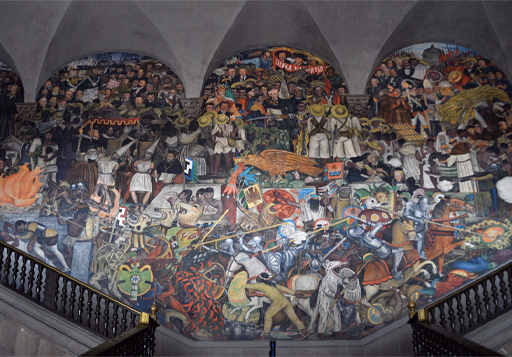Introduction
How did empires begin? How were they experienced and maintained? How did they end and what legacies have they left behind?
This course will help you to answer these questions by exploring three concepts that are vital for understanding empires: power, resistance, and legacies.
Empires have existed through time and in virtually all parts of the world. They are systems of power which have profoundly shaped politics, economics, cultures, and social relations. The way that empires were established and maintained required the exercise of different forms of power: from military conquest and violent suppression to cultural hybridity and ‘philanthropic’ investment.

Empires were also sites of resistance, survival, and accommodation. How colonised people responded to their condition was varied: some tried to overthrow imperial regimes, others sought limited power through cooperation with individuals and states. Everyday acts of survival, the preservation of cultural identity, and the rise of political anticolonialism created a complicated spectrum of resistance to imperial rule.
Empires came to complex and - in some cases - unfinished endings. Diplomacy, political and economic manoeuvring, and violent conflict were all key components for the varied endings of empires. But how complete was that process? Whilst territorial and constitutional withdrawal might have occurred, what vestiges of power were left behind to maintain metropolitan influence over formerly colonised spaces?
Legacies of empire were also felt within their former imperial centres. Empire was not a one-way system. The flow of goods, ideas and people reshaped nations who participated in colonial projects. Traces of these histories can be seen in the material culture, physical landscape, political and commercial institutions of the metropole. It can also be seen in the ways that national identity was reconceptualised by the experience of empire.
To examine these histories further the course is structured by the three themes: power, resistance, and legacies. Each theme has subsections which are case studies that will allow you to explore each one in more depth. You will be able to see how these concepts applied within different historical and geographic contexts. This will allow you to compare and contrast how empires functioned differently over time and space.
Session 1 Understanding empire will introduce you to some of the tools that historians use to make sense of the imperial past. You will explore different approaches to the history of empire and what they can tell us about the political contexts out of which they have emerged. You will critically engage with the archives of empire and how they structure what we know about the imperial past. You will analyse the construction of geographies of empire to consider how mapping created imperial worlds.
Session 2 Power will introduce you to different forms of power - military, ideological and cultural - and how they were exercised in relation to the establishment, justification, and management of empire.
Session 3 Resistance will introduce you to different forms of resistance – military, everyday, and insurgent – and how they were used to repel initial incursions, maintain agency, and bring about an end to empire.
Session 4 Legacies will introduce you to the debates about the ending of empire and its afterlives. You will consider the legacies of empire in the context of former colonial and metropolitan centres. You will also look at how the memory of empire has been contested in these spaces.
Use of racial language and ideas
This course deals with topics involving racial issues, language, and violence. Although these may provoke a strong personal response, we believe it is necessary to engage with these difficult topics to reach a clear understanding of the history of empires. If you are likely to find this distressing, please consider carefully how you might want to engage with this.
This free course is an adapted extract from the Open University course A328 Empires: power, resistance, legacies [Tip: hold Ctrl and click a link to open it in a new tab. (Hide tip)] .
